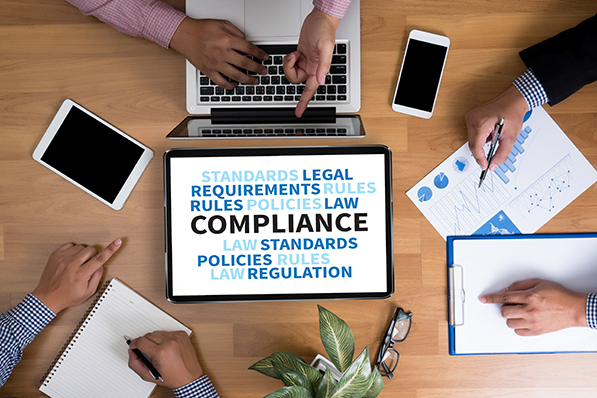The California Labor Commissioner recently reminded California employers about California’s immigration laws and protections, highlighting that they protect every worker in the state — regardless of immigration status — including protecting workers from unfair immigration-related practices and retaliation.
As previously reported, this year has seen increased immigration enforcement across the country, so it’s important for employers to know their legal obligations, including:
- Form I-9 compliance and document retention.
- How to respond to enforcement actions, such as Form I-9 audits.
- Worker protections under both federal and state law.
To learn more about immigration compliance issues, register now for CalChamber and the California Office of Small Business Advocate (CalOSBA)’s live webinar on June 18, 2025, that will go deeper into these topics and further equip employers with the knowledge and tools needed to understand and comply with evolving federal and state immigration regulations.
Form I-9 Compliance
Completing the Form I-9 for all new hires is required for all employers. Employers must always use the most recent version of the Form I-9 issued by the U.S. Citizenship and Immigration Services (USCIS) and strictly follow all rules for timely completing the form, inspecting employee documents and document retention.
When completing the Form I-9, employers must ensure that the employee receives a copy of the instructions to complete Section 1 and understands the documentation they are required to provide the employer. Once Section 1 is completed, employers must receive documentation from the employee that verifies their authority to work in the United States as well as their identity. An error that employers must avoid is requesting specific documents to complete Section 2. Under the law, the employee is allowed to choose which documents to provide, as long as they are sufficient and authentic.
Another common employer violation is failing to properly retain the Form I-9 and related documents as required by law. Employers must retain the completed Form I-9 for the entirety of the employee’s employment plus either three years after the form’s completion or one year after the employee’s employment ends, whichever is longer.
Form I-9 Audits
To ensure that employers are following this process in accordance with the law, the Homeland Security Investigations (HSI) unit, within the U.S. Immigration and Customs Enforcement (ICE), may issue employers a Notice of Inspection (NOI) to review Form I-9 documentation, which informs employers that they will have three business days to collect and submit their Forms I-9 and related documents.
California’s Immigrant Worker Protection Act requires an employer that receives a NOI to post a notice to employees in the workplace within 72 hours of receipt with information about the inspection and a copy of the NOI. The notice must be posted in the language normally used to communicate employment-related information.
After the audit, employers must provide — within 72 hours — a notice to “affected employees” identified as potentially lacking work authorization or with other document deficiencies. This notice must relate only to the affected employee and must be hand delivered to the employee at the workplace, if possible. Otherwise it must be delivered by mail and email. The notice also must be delivered to the employee’s collective bargaining representative, if any.
In addition to audits, ICE may utilize more aggressive enforcement through raids, where the HSI will execute criminal warrants at a workplace to collect evidence and administratively — and sometimes criminally — arrest employees who are alleged to be working in the United States unlawfully. Raids are often conducted after the completion of an audit.
Employers should take steps to prepare for and minimize enforcement activity, including training employees on Form I-9 requirements and self-auditing Form I-9 documents, which allows for employers to correct errors and potentially avoid ongoing violations and liability. Employers should consult with legal counsel to ensure their Form I-9 practices comply with the law.
Worker Protections from Discrimination and Retaliation
As employers navigate federal and state immigration enforcement requirements, they must also be mindful of worker protections from discrimination and retaliation. For example, if an employer decides to self-audit their Form I-9 documents, the action is subject to anti-discrimination rules, and an employer should proceed cautiously.
An employer may audit all forms or a sampling of the forms, but in either case, the criteria chosen must be neutral and nondiscriminatory, and avoid any appearance of targeting or retaliating against employees. ICE has prepared guidance for employers to follow if they choose to self-audit.
The California Labor Commissioner highlights additional protections, stating that “under California’s labor laws, employers are prohibited from:
- Requesting more or different documents than required by federal law
- Misusing E-Verify
- Threatening to file a false report with a government agency
- Threatening to contact or contacting immigration authorities”
California law also prohibits taking adverse employment actions against workers based upon their national origin and immigration status. While removing a worker for lacking authorization to work in the United States is a lawful and legitimate business decision, employers need to ensure that supervisors, managers and other decisionmakers avoid disparate treatment based on an actual or perceived protected class.
Employers should consult with legal counsel to help ensure their policies and practices comply with the law.
James W. Ward, J.D., Employment Law Subject Matter Expert/Legal Writer and Editor, CalChamber
CalChamber members can read more about Immigrant Worker and Discrimination/Retaliation Protections in the HR Library. Not a member? See how CalChamber can help you.
